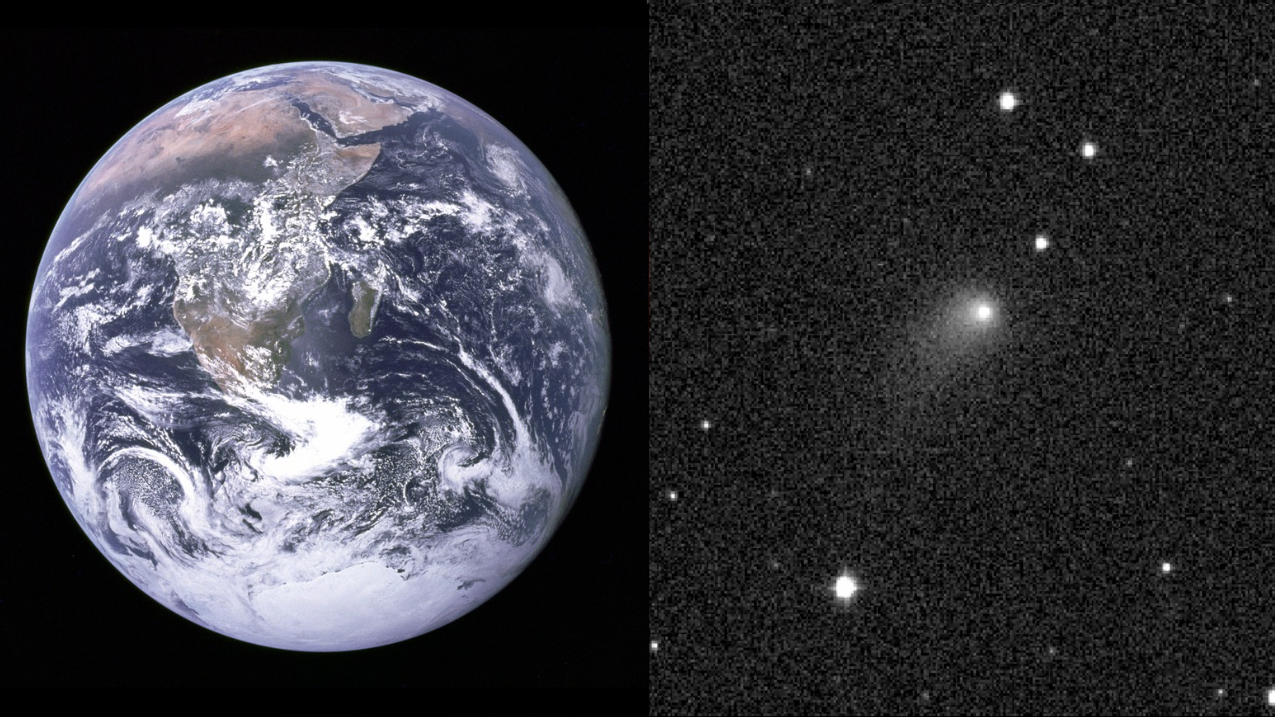Stargate Interview: Amanda Tapping, Brad Wright, & Google's Laurence Moroney talk Stargate AI 2.0
We speak to sci-fi icon Amanda Tapping, Stargate showrunner Brad Wright, and Google's AI lead Laurence Moroney about the latest Stargate AI screen read.
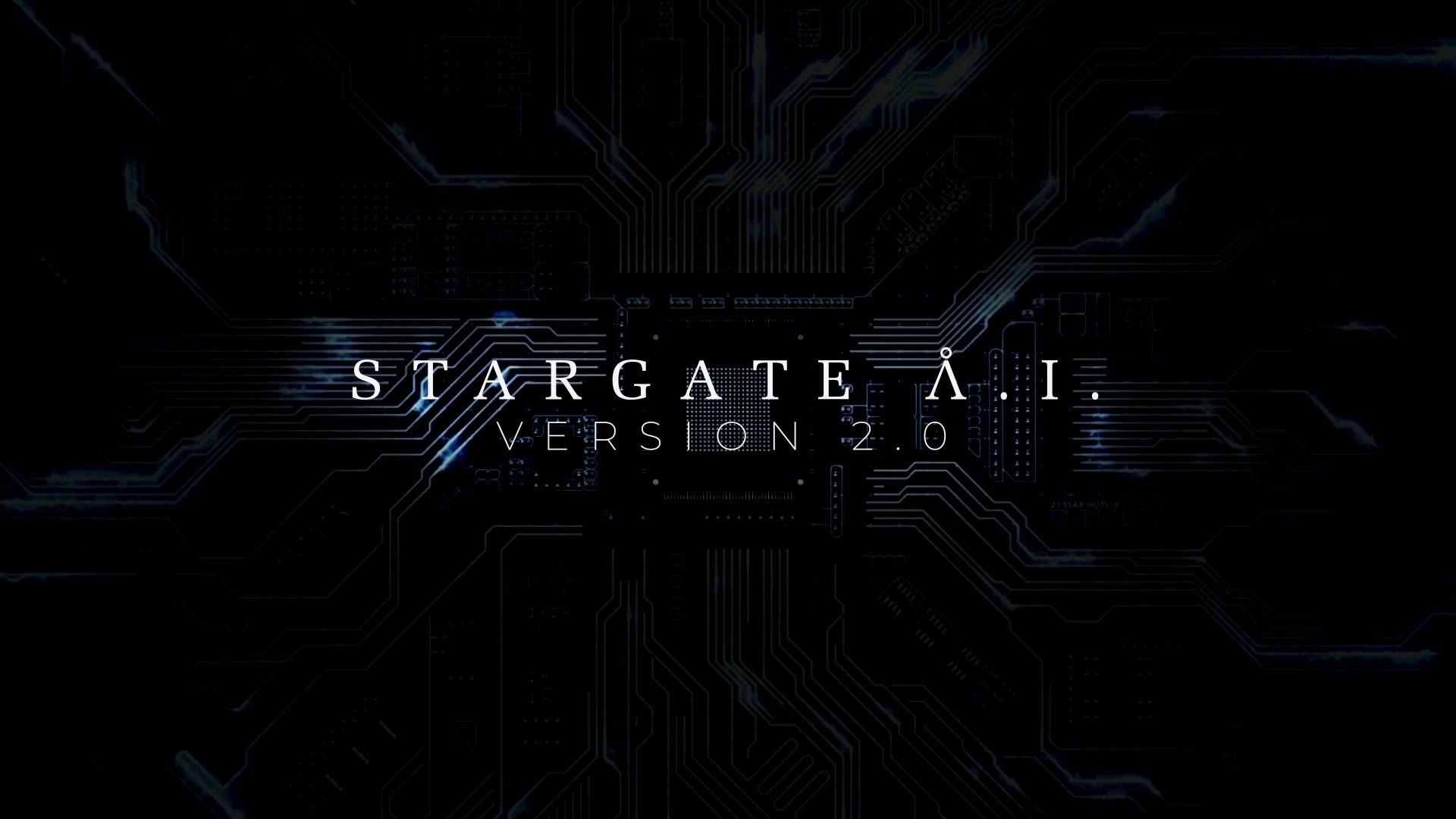
Breaking space news, the latest updates on rocket launches, skywatching events and more!
You are now subscribed
Your newsletter sign-up was successful
Want to add more newsletters?

Delivered daily
Daily Newsletter
Breaking space news, the latest updates on rocket launches, skywatching events and more!

Once a month
Watch This Space
Sign up to our monthly entertainment newsletter to keep up with all our coverage of the latest sci-fi and space movies, tv shows, games and books.

Once a week
Night Sky This Week
Discover this week's must-see night sky events, moon phases, and stunning astrophotos. Sign up for our skywatching newsletter and explore the universe with us!

Twice a month
Strange New Words
Space.com's Sci-Fi Reader's Club. Read a sci-fi short story every month and join a virtual community of fellow science fiction fans!
Sci-fi is full of cautionary tales about artificial intelligence, machines rising up to make us obsolete, and, if we’re especially unlucky, wipe us out. But what does the cutting edge of AI technology actually look like today? Well, it might shock you to learn that it’s busy learning how to write scripts for new Stargate episodes.
Enter Stargate AI, the ambitious project being headed up by Stargate TV series co-creator Brad Wright and Google AI’s Laurence Moroney in partnership with The Companion. The idea was simple – feed all the existing Stargate scripts into an AI and get it to write a new set of scripts for the actors to read. As it turns out, things are a lot more complicated than that.
The first Stargate AI project culminated last year with a live reading from Amanda Tapping (Samantha Carter), Michael Shanks (Daniel Jackson), Jewel Staite (Jennifer Keller), and David Hewlett (Rodney Mckay) who all reprised their roles from Stargate SG-1 and Atlantis . It was a wild ride, and while the AI occasionally offered some surprises, it’s safe to say that it wasn’t going to be replacing Brad Wright and his team anytime soon.
Now they’re at it again to celebrate the 25th anniversary of Stargate SG-1, and this time Laurence and his team have made a few tweaks to the AI, with staggering results. For this second script reading, Amanda Tapping and Michael Shanks are back along with Richard Dean Anderson, stepping back into the roles of Samantha Carter, Daniel Jackson, and Jack O’Neill together again for the first time in 12 years.
We had the chance to chat with Amanda Tapping, Brad Wright, and Laurence Moroney about the Stargate AI project, life after Stargate, the history of the show, and the possible return of the beloved sci-fi franchise.
Before we get into the interview, if you want to check out the Stargate AI 2.0 Reunion Table Read, head on over to The Companion where you can sign up for a free three-month trial. The Stargate AI 2.0 event debuts on May 21st at 11am PDT, 2pm EDT, 7pm BST. If you can’t make it for the debut stream though, don’t worry as you can watch the whole thing at any time with your membership to The Companion.
We've also got an exclusive clip for Space.com readers to show you what you can expect to see during the live read.
Breaking space news, the latest updates on rocket launches, skywatching events and more!
Space.com: Could you just tell our readers a little bit about what the Stargate AI project is and what you're doing?
Laurence Moroney: Sure, I would love to hear Amanda's take on it.
Amanda Tapping: Well, Laurence is this crazy guy who works at Google and created an AI and fed all of the Stargate scripts into it, to see what it would come up with. And it came up with its first iteration of scripts, which were really fun, but a bit weird and slightly disjointed. There were words that weren't actually part of our language!
Then we did a second round where the scripts were so much more sophisticated [...] it got the nuance of the characters in a much different way than the first iteration. Maybe because we had Richard Dean Anderson for the second iteration, and he's a very specific character.
Brad was quite nervous as to whether this would mean writers were out of a job. They don't think that's the case quite yet... but the second iteration was a little frightening in that regard.
Laurence: [Amanda] pretty much hit the nail on the head. [...] Brad was putting out the ideas. Okay, we've got over 300 episodes of Stargate and that's a lot of data. When people build AI they'd like to train it on data, and maybe we have enough data to be able to generate a script.
I don't really like to use the term an AI as a noun. To me AI is a concept [...] But he [Brad] kind of put out that challenge and I responded. I had worked with Brad before on one of his shows called Stargate Universe doing some digital marketing. It must be like 12-13 years ago. So fortunately, when I answered the challenge, Brad kinda sorta remembered me.
Brad Wright: I’ve been working with The Companion for a couple of years now, writing essays, doing podcasts, mostly with the various casts of Stargate. Great guys, going places I think. They suggested we do a read through of a Stargate script – an idea for a scene or scenes that we never produced. There were two obstacles to that. One, if we had a good idea we shot it! Two, MGM owns Stargate, not me. I couldn’t really do anything without their permission.
But then I had the thought: what if we got an AI to write the scenes as a sort of science experiment? Stargate SG-1 ran 10 seasons. That’s a lot of material for an AI to draw from. So we put it out there on Twitter: Could an AI write scenes for Stargate? Laurence, whom I had met a decade earlier when he worked at Microsoft, immediately accepted the challenge. And as lead advocate for Google AI he’s immensely qualified. It was a great excuse to get some of the band back together and do a read through of a script. It didn’t have to be good, really. And it wasn’t. But it ended up being very funny.
Laurence: I wanted to do it in a very different way. Often what happens is you'll feed a bunch of text into a model, you'll train the model on that text, and you'll have the model generate new text and it very quickly turns into gibberish.
The first table read had Amanda, Michael Shanks, David Hewlett, and Jewel Staite. Those four actors and actresses, and the characters that they play, had never appeared together in a scene. Right off the bat, you're behind the eight ball. There's no existing scene with those folks in it. So, for an AI to try and generate something with those four folks in it, there was zero data. If we try to do the same old way that everybody does it, and throw all of these into a model and have the model spit stuff out, it's going to be nonsense. I tried… and it was nonsense very quickly.
And if you throw all the scripts at it and ask it to generate something, it will start generating stuff with characters for whom we didn't have the actors or actresses available. Again, you'll hit a wall. So I came up with a new way or a different way of doing this and instead of creating one model, I created individual models for each character.
Brad: I knew that AI wasn’t really there yet when Laurence accepted the challenge the first time, and the results were hilarious. But, as he warned, AI written scripts tend to devolve into gibberish.
When The Companion suggested we try again, Laurence accepted the challenge to make substantial improvements and, boy, did he deliver. This time the scenes are cogent from beginning to end. Are they great writing? Maybe not. But Laurence came up with truly innovative ways of improving his models. Jack sounded like Jack. Daniel was Daniel, etc. And the action description was far more realistic. I kept thinking, where did that come from?
I’m hoping this version gets some attention in the actual science world for its innovation. All credit to Laurence.
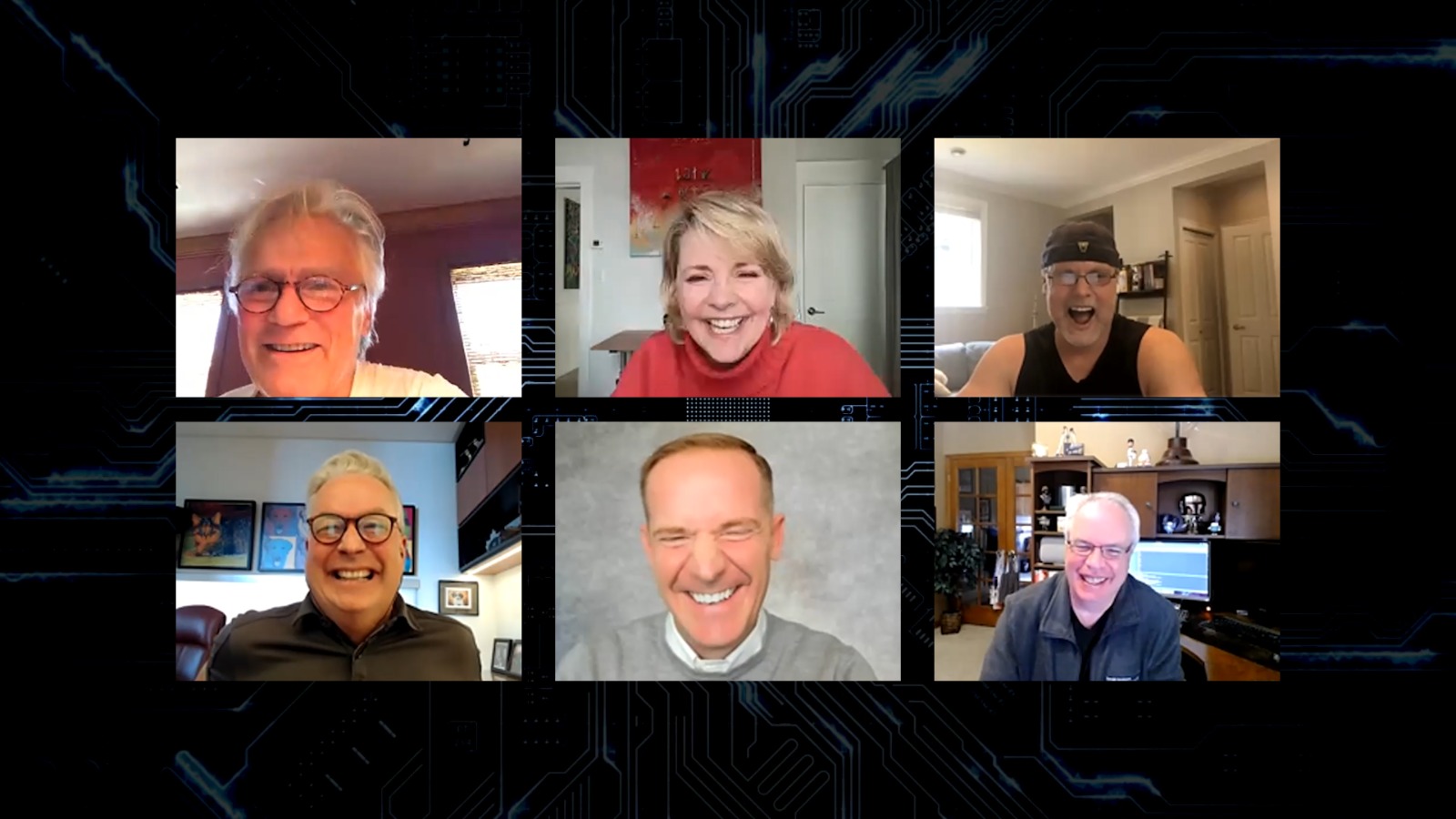
Laurence: What I wanted to focus on initially was the dialogue. So, in this case, on page dialogue will happen in response to three different things. Number one, there would be action and there'll be dialogue in response to that. For example, something explodes – how would Sam respond to that? She might say "take cover" or that kind of thing. Other people might go "ah, crap," but she'd be more logical and her dialogue will generally be different in response to action.
The second thing would then be in response to something that somebody else has said, like how Sam would respond to Jack, or how Sam would respond to one of the bad guys. She would have a very particular vernacular in responding to exterior dialogue.
And then the third thing would be, and this one's a little bit more vague, but it's how Sam would respond to her own dialogue. Say you have an action description and then there'll be the first thing that Sam would just say in response to that, but then the second thing she would say is generally following the first thing that she said.
Most of the characters had those three models created for them. We had four characters in the initial table read – that's 12 models. In some cases I created additional ones. Like, the fans love Sam and Jack's relationship so I wanted to build something for how she responded to Jack in particular, or how Jack would respond to Sam.
Amanda: What I found fascinating was the nuance that it picked up on. It found Jack's sarcasm and all these little hooks that we had into our characters. It was almost like it knew us. But then there were also things like at Jack's cabin. Daniel comes down the stairs in a bathrobe and I'm like “what the hell is Daniel doing in Jack's cabin?!” There's always been this sort of flirtation between the two of their characters in a weird and wonderful way that’s never played up on in the show [...] there’s this interesting connection between the two of them. And in the AI script it was like, “Well, what's just gone on here fellas? I'm the one that's supposed to be coming down the stairs in a bathrobe.”
Laurence: And then at the end of that script, Jack gives Daniel a pay raise. Exactly. It was Rick [Richard Dean Anderson] that picked up on that. Oh, that's why he was in the robe.
O’Neill, with two Ls
Space.com: As you've mentioned, Richard Dean Anderson (Rick), who plays Jack O’Neill, is coming back for this one, alongside Michael Shanks. How was it reuniting with the cast?
Amanda: I talk to Rick all the time. And Michael. This pandemic has kept us all separate physically from each other, but I didn't feel like “Oh, I haven't seen them in so long. It's gonna be weird” because we're friends. But it was the first time hearing the three of us do these characters together again. I didn't realize how thrilled I would be by that, but listening to Rick and Michael's banter [...] took me right back to Stargate and to filming.
As soon as Rick started speaking as O'Neill, I was like, “oh, we're back.” It took no time at all to drop right into those characters again, like nothing. That's a credit to Laurence in what he's done.
Brad: Yes! The original band members. Richard had done a couple of The Companion events with me, including an Ask Me Anything, so when I suggested he join us for another try at a read through of AI written scripts he was happy to join in. It was nice seeing him, Amanda, and Michael on screen again, even if it was in a Zoom call. Their affection for each other, even after all these years, shines through.
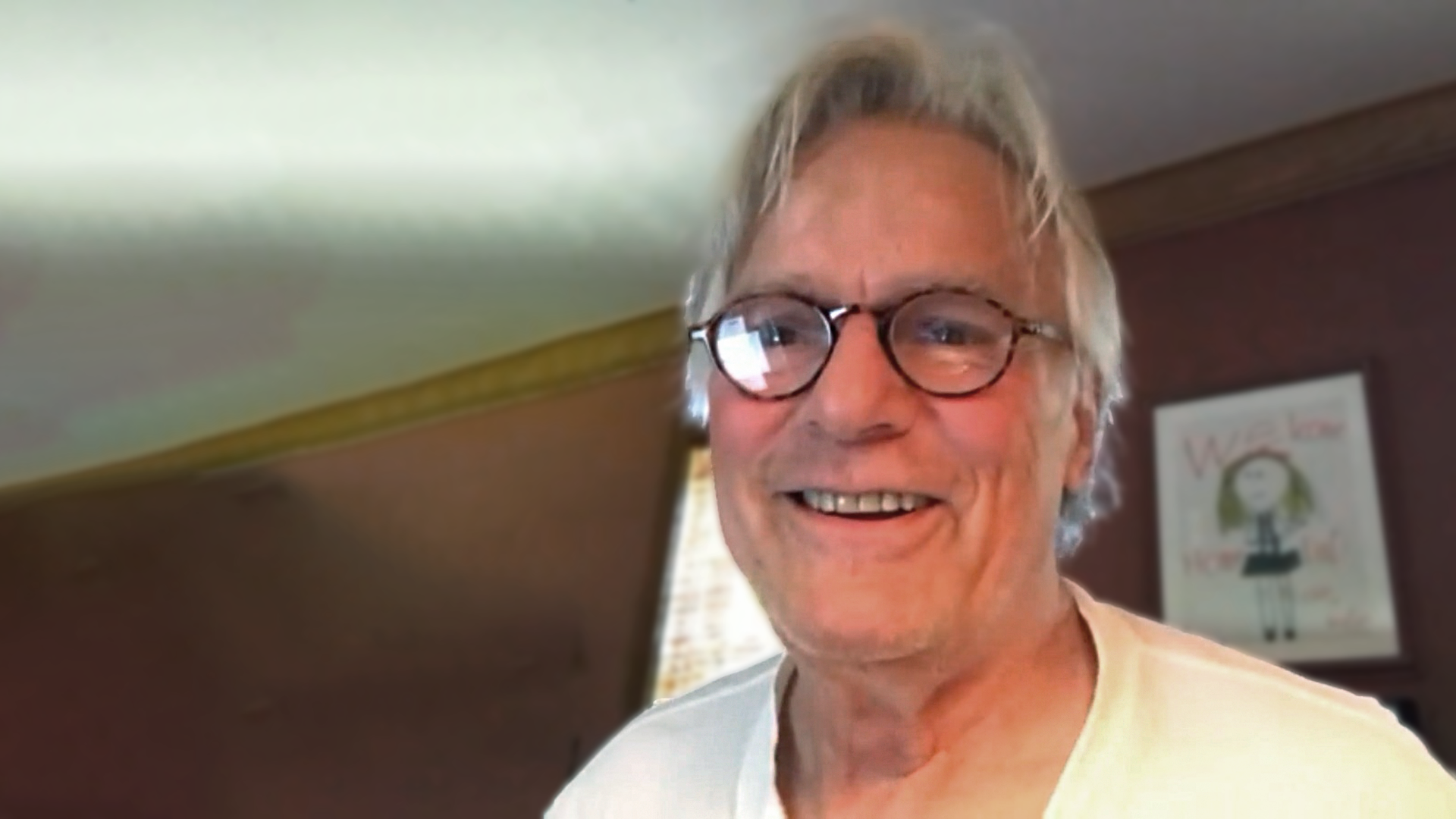
Space.com: Richard Dean Anderson is back for this one. Do you think he's gonna bring a different energy to the reading compared to the first one?
Brad: Rick was all in. He read every word the AI wrote and it was like Jack O’Neill had returned. I loved it. We all did.
Amanda: Yeah [laughs]. I adore this man, just absolutely love him. He is naughty and sarcastic and super intelligent. And so therefore really quick witted. He loves to play this bumbling fool, which he is decidedly not, but he plays it so well that you're convinced that he is. He brought a whole different energy, and I missed that. It was really fun to see him come back.
Laurence: We also brought a surprise element in this reading where we did some AI generated art alongside it – Richard's reaction to them was absolutely priceless.
Amanda: Laurence did art in real time. He plugged something in and we watched it. I don't know who said it, but it did look like a Boston album cover. The art was amazing.
Laurence: When you watch the stream, I hope we catch a lot of Rick's reactions [...]
Amanda: Oh, yeah. Just remembering.
Laurence: You know, the one I mean,
Amanda: Now I do. I'm blushing.
Space.com: Well now we can’t wait to see what you’re talking about.
Amanda: It'll be very clear. There'll be no mistaking what we're laughing about.
Laurence: We were emceed by Marc Evan Jackson.
Amanda: I'm a massive fan of his and I love his work, especially on Brooklyn Nine-Nine. When I first saw him, I was so starstruck. I was really nervous, but it turns out he was a massive Stargate fan – it was just very cute. He had a character on this one. What was it, Jamaev?
Laurence: Jamaev, yeah. One of the scripts just kept having a man coming into the script as an antagonist doing obscure things, and I'm like, “Okay, we can't have it just called man in the scripts.” This was one part where I manually did something. I just wanted to give him a Stargate-y sounding name, so I called him Jamaev, which is Marc Evan Jackson, right? The first two letters of each of his names, and, you know, to see who would spot it first. And Brad got it right away.
One of Rick's reactions to the art had us all laughing and then we couldn't continue. He [Marc] was the one being the perfect MC just brought it all back and just said “next on Stargate after dark." It was perfect.
Nothing but good vibes
Space.com: Doing the AI read, did you discover that you missed the character more than you maybe thought you did?
Amanda: I did, because after Sam I went on to play Helen Magnus [Sanctuary], who was like a completely different character. Sam is, after 10 years and a couple of movies, so much a part of me. We informed each other so much. I've often said in interviews that I feel like I came into my own as a woman while I was playing Sam and I think Sam came into her own as a woman at the same time. She's so much a part of me, but I realized the things about her that I missed, part of which is her logic, her loyalty, her integrity. So yeah, I'd missed playing her and it was nice to put the boots back on. Which I have a pair of.
Space.com: SG-1 ran for 10 seasons and that's a long time for any show to run. What do you think it was about the show that gave it that longevity and popularity with the fans?
Amanda: I think it was the right time for a bit of slightly optimistic sci-fi. And I think it was the fact that there was a sense of humor to the show. We took it seriously, but there was also a big sense of humor component, largely driven by Rick. We were really different characters, but all really fallible. I'd like to think that that makes it more accessible when you see a bit of yourself in the characters that you're watching on television. We didn't try to hide those flaws, we weren't superheroes. We weren't coming in like a lot of space shows were like “we're coming to save the day.” We screwed up a lot, and then acknowledged our mistakes. I liked that, it was very human.
The thing that I hear from a lot of fans, even to this day, is that they just loved watching the characters. A lot of women really related to Sam and found a source of strength in her, or found an opportunity to pursue something that perhaps they didn't think they could have prior to watching the show, which is astounding to me. And it was also a family safe show. I get so many fathers and daughters coming up to me saying that they watched the show together and bonded over it. [Laurence raises his hand] Yeah, like Laurence.
Brad: Stargate’s secret sauce was that it was set in the present-day. It could be happening right now. The teams that went through the gate were like us, warts and all. The Stargate device itself gave us access to the galaxy we had not yet earned on our own. We eventually gained access to technology centuries more advanced, but until then we were the underdog. When our team won battles with our enemies, it was with our present-day technology, grit, and a lot of humor.
Space.com: The character of Sam definitely had a big impact on many sci-fi fans, ourselves included. Amanda, you've acquired the well-deserved moniker of the queen of sci-fi. Was sci-fi a natural fit for you when you started acting?
Amanda: It was not a natural fit for me, it wasn't. I liked Star Trek: The Next Generation – I watched that with my brothers – but I was more [of a] Little House on the Prairie kind of girl. So when I first started I vowed I would never do television, because I wouldn't prostitute myself for my art. You know, do art films maybe if they were in black and white. I had very lofty ideals of only doing the Stratford Festival and things like that, but then television became a really natural fit. Stargate was interesting because I watched the movie, but I didn't know a lot about sci-fi and I think that that actually helped me in some ways. I didn't come in with any preconceived notions of what sci-fi was supposed to be.
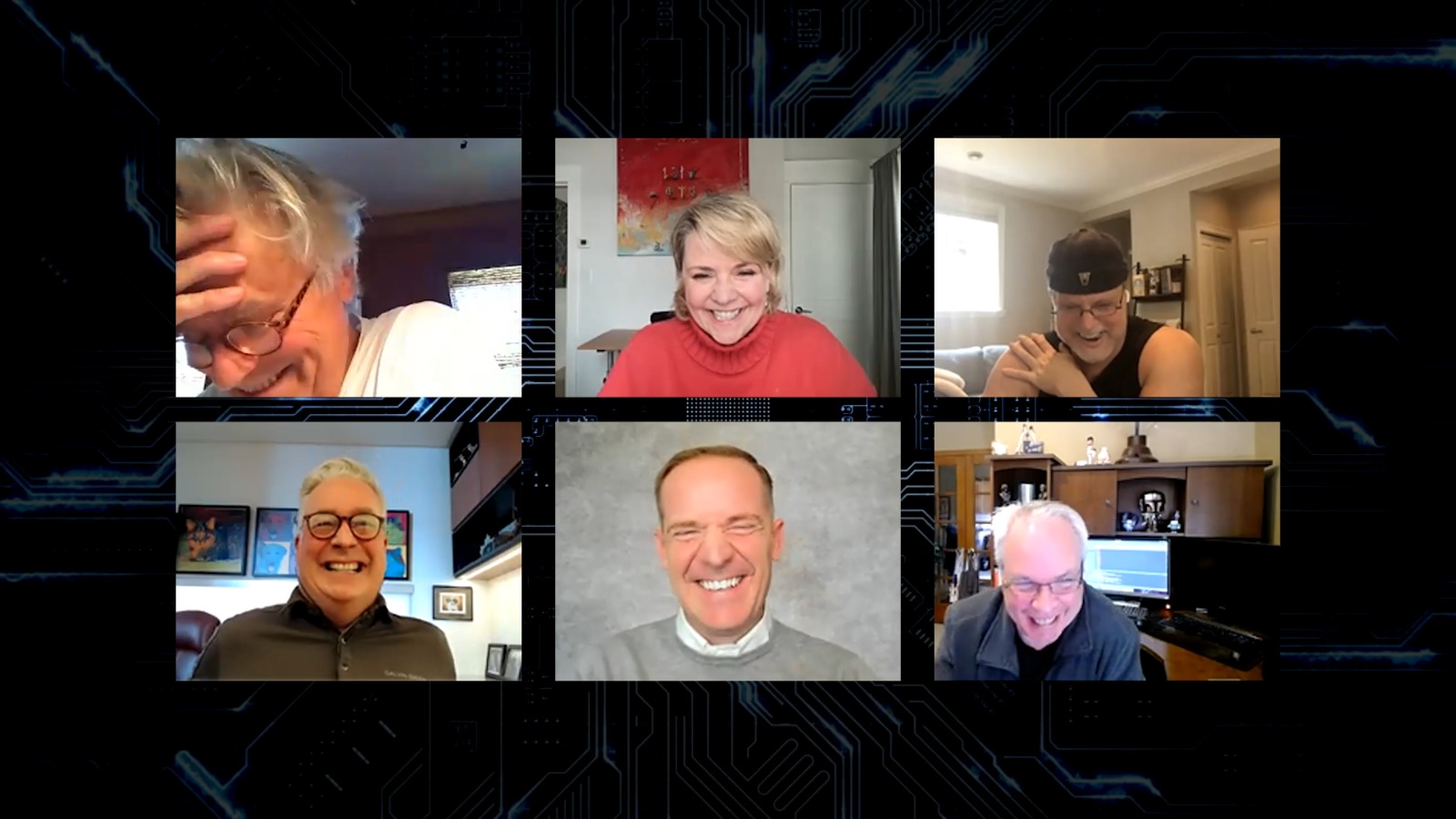
Space.com: Is there a particular highlight of working on Stargate, like a storyline, episode or scene that stands out to you as something special?
Amanda: I loved working with Carmen Argenziano, who played my dad. We had an instant connection and I just adored that man. I'm so sad that he's gone. We had a great time whenever we worked together and it was just so familiar, like he felt like my dad, you know? It was like that from the beginning, so I loved anything to do with the Jacob storyline.
I loved working with JR Bourne, [who played] Martouf. The Casandra storyline with Teryl [Rothery] and I sort of raising this girl. And anything with Don Davis. Don Davis was such a hoot. I have so many memories of sitting in that briefing room laughing like an idiot because of something Don said. Then when Beau Bridges joined, my God, we had Beau Bridges on our show for crying out loud. Like what? Crazy! And I was so in awe of him and so nervous to work with him, but he was so lovely and so fun. And there's many outtakes of us just laughing in the briefing room.
I don't tell a lie. When I say this, we laughed every single day. Every day. There was something that made us laugh, no matter how tired we were, or wet or cold or whatever. There was always something that made us laugh. That is a massive gift.
Directing the action
Space.com: For the last few years, you've mainly been behind the camera rather than in front of it. Have you been enjoying directing and how do the challenges of directing compare to acting?
Amanda: I absolutely love it. Do I miss acting? Very much, but I do love being behind the camera. I love being part of the creative team. I love the camaraderie of being on the floor all the time with the crew and the collaboration that happens when you're a director.
There's something about walking onto a set where you don't know anybody and having to win them over. You get about a half hour window. Same when you're in prep as the first meeting informs everything. I did a show in New York and I'd never worked in New York before so I didn't know any of the people. I knew Martin Gero, but he wasn't there, so I was walking in blind on Blindspot. And I was so scared, but that fear gives me a lot of adrenaline. It's just plugging into the matrix of a different show every time and plugging into that energy.
I think because I'm an actor, I play different parts of myself, depending on what's needed. So there's a lot of acting involved in my directing. I hope that doesn't sound bad, but there's a lot of just reading the situation and knowing what it needs from me.
For the last two years, I've been the producing director on a show called Motherland: Fort Salem. That's a whole different beast where you're really deeply embedded in the production: there all the time, hiring the directors, making sure the crew is okay, making sure the casts are okay. It's a big responsibility and it was a fresh challenge for me. That was exciting, but I feel twitchy after doing the second AI read. I was twitchy to get back into acting in some form.
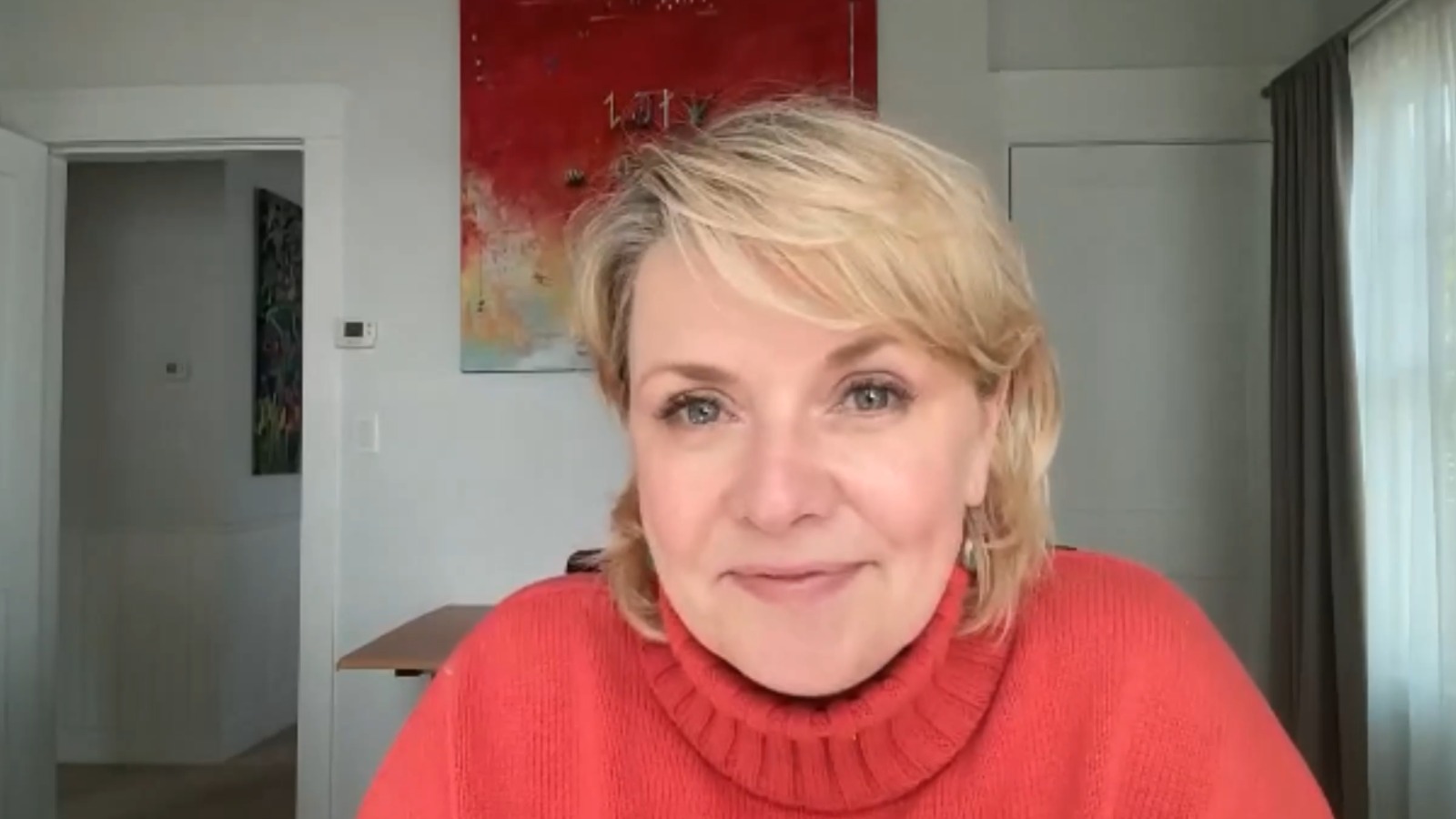
Space.com: If there was a future Stargate project, would that be something you would want to get involved with?
Amanda: Absolutely. And it's funny, because when it finished, I was like “You can't go backwards. It's done.” But [...] in doing those readings, the last two AIs, it made me realize how much I still love that character, and I still love the concept of the show, and I still love my fellow actors. It was just lovely. It felt like going home. There maybe was a period of time where I was like, “I'm done, let's move on people." Now there's another part of me that's very much like, “yeah, I would absolutely.” But I would make sure that I was allowed to direct them too.
I think that maybe we all would. I haven't really asked that question of my fellow actors, but I think there's a part of us all that would in some way. I mean, it would have to be a different iteration of the show, and maybe we'd just be ancillary characters that float in and out every now and again, but absolutely.
Laurence: Or maybe you'd be in charge.
Amanda: In charge of the whole thing.
Laurence: President Carter has a nice ring to it.
Amanda: It really does. Golly, Laurence.
Laurence: Hire me as a writer, I'll do it.
Space.com: We can't hire you, we've got the AI you built.
Laurence: Oh dang. Format C:
Space.com: Amanda, having worked as a director on so many other shows, are there any actors you've worked with or upcoming talents that you think would be ideal for a new Stargate show?
Amanda: Oh, yeah, there's quite a few. I'm afraid to say because then the actors whose names I don't mention would be like “what about us?” But there's an actress by the name of Demetria McKinney who's now doing Winchester which is the prequel to Supernatural. She was on Motherland [...] and Lyne Renée, who played our General Alder on Motherland, are both just incredible talents.
I love Kiernan Shipka, who's a huge star. I worked with her on Sabrina and I have never worked with a number one who was that committed, and that gracious. And Eric McCormack on Travelers – just super professional and wonderful. I would work with her, I'd work with Eric, and I'd work with any of the cast from Travelers again. They were all amazing.
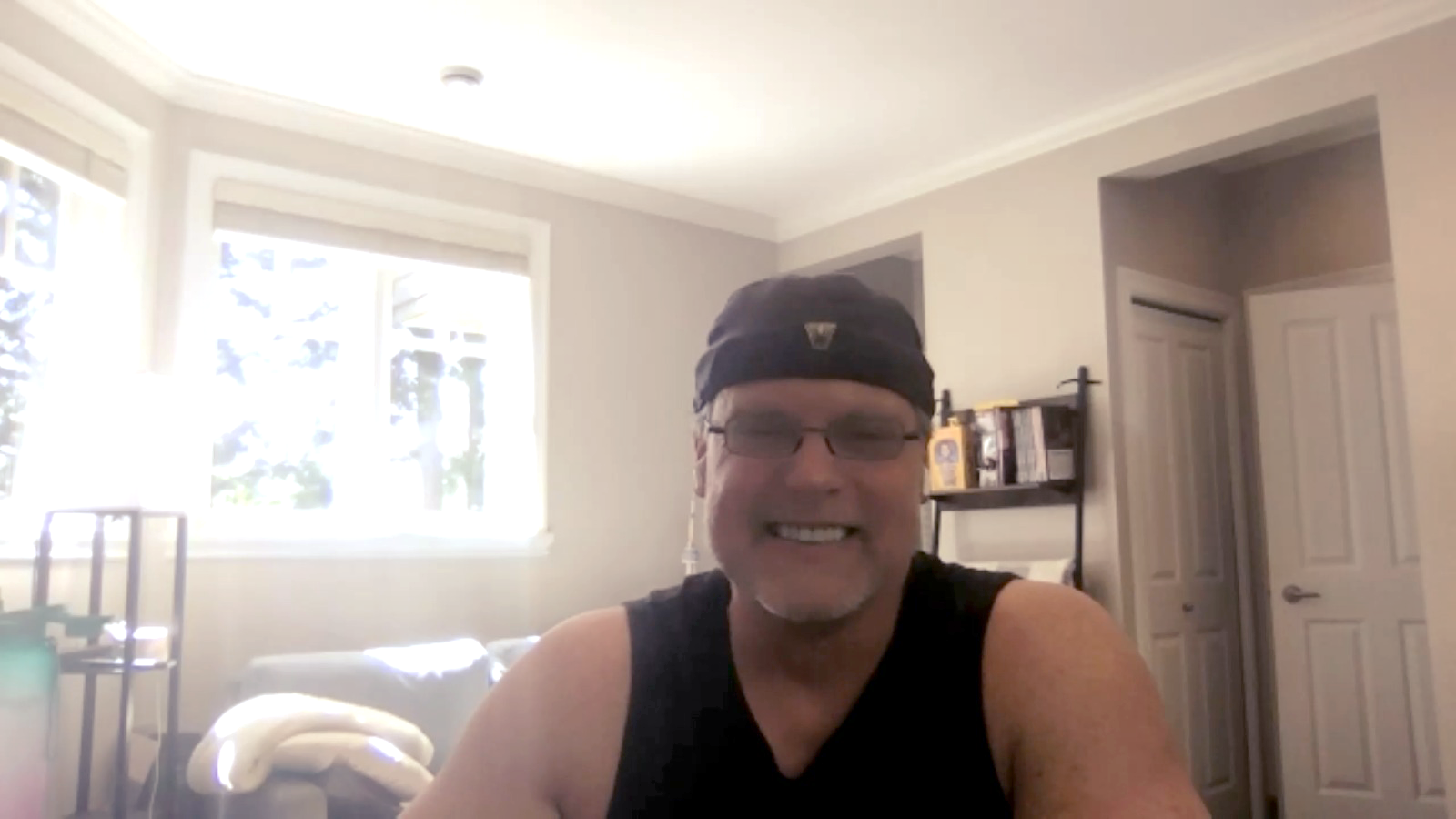
Don’t send a machine to do a person’s job (or vice versa)
Space.com: Brad, why are you running a program to help an AI replace you? Aren’t you worried about the AI stealing your job?
Brad: Nope. Not in my lifetime. Is it incredible for what it is? Yes. Does it replace a human imagination? No. And if it ever does, the ramifications will go far beyond screenwriting.
Space.com: Laurence, are you gunning for Brad's job?
Laurence: No, of course not, at least not in the AI sense. I wouldn't mind being a writer and a producer, but I just don't have the skill set for that. The idea here is, if you can create something that helps make people like Brad more productive, if you can use technology to be able to do that kind of thing – and not just writers and producers, any kind of creator – something that will help them be more productive, help stop writer's block, help spur ideas, etc.
I'm a coder primarily and there are tools out there if I want to build an app to do X, Y, or Z, there's a thing out there that can automate a lot of the grunt work for me, and then I bring value by putting the detail, adding the leaves to the tree as it were, instead of me having to do everything [...] something like that for the TV industry, for the movie industry. [...] That's the eventual outcome of something like this as opposed to replacement.
The important thing is to think about moving people up the value chain. A lot of times a negative skew on this can be it replaces jobs, but this is making the skills that you bring more valuable by removing some of the drudgery that you generally have to do.
Space.com: Have you been surprised by how effective the AI is?
Laurence: I think I've always had the idea that the right application of AI models and techniques with AI models would have a great effect. Part of my motivation for doing this kind of thing is to get people beyond the hype cycle of AI. No disrespect meant to Brad, but the statement that he made was like, “hey, wouldn't it be great if you could get an AI, feed it hundreds of scripts, and it will write a new script” is very much in the hype cycle. When we can bust through the hype cycle, then you can see what this kind of thing can do, and, just as importantly, what it can not do, then real innovation can begin.
When you watch that first script reading, you probably saw that's when we started busting through the hype cycle, falling into what we call the trough of disillusionment, which sounds like an Ori holiday camp. Once we're in there, and then [you realize] this is what you can do, this is what you can't do, this is fun, this is ridiculous.
The AI industry as a whole is still behind that peak of inflated expectations in the hype cycle, and projects like this help us get through that. And then when non-technical people like actors or writers start thinking and ideating, once they understand that the technology is all about solutions for them, then we start changing the world. We start building solutions for the people who will really be using this, like the idea of a co-pilot for a writer, you know? I think this is a great way that we'd be able to change the world.
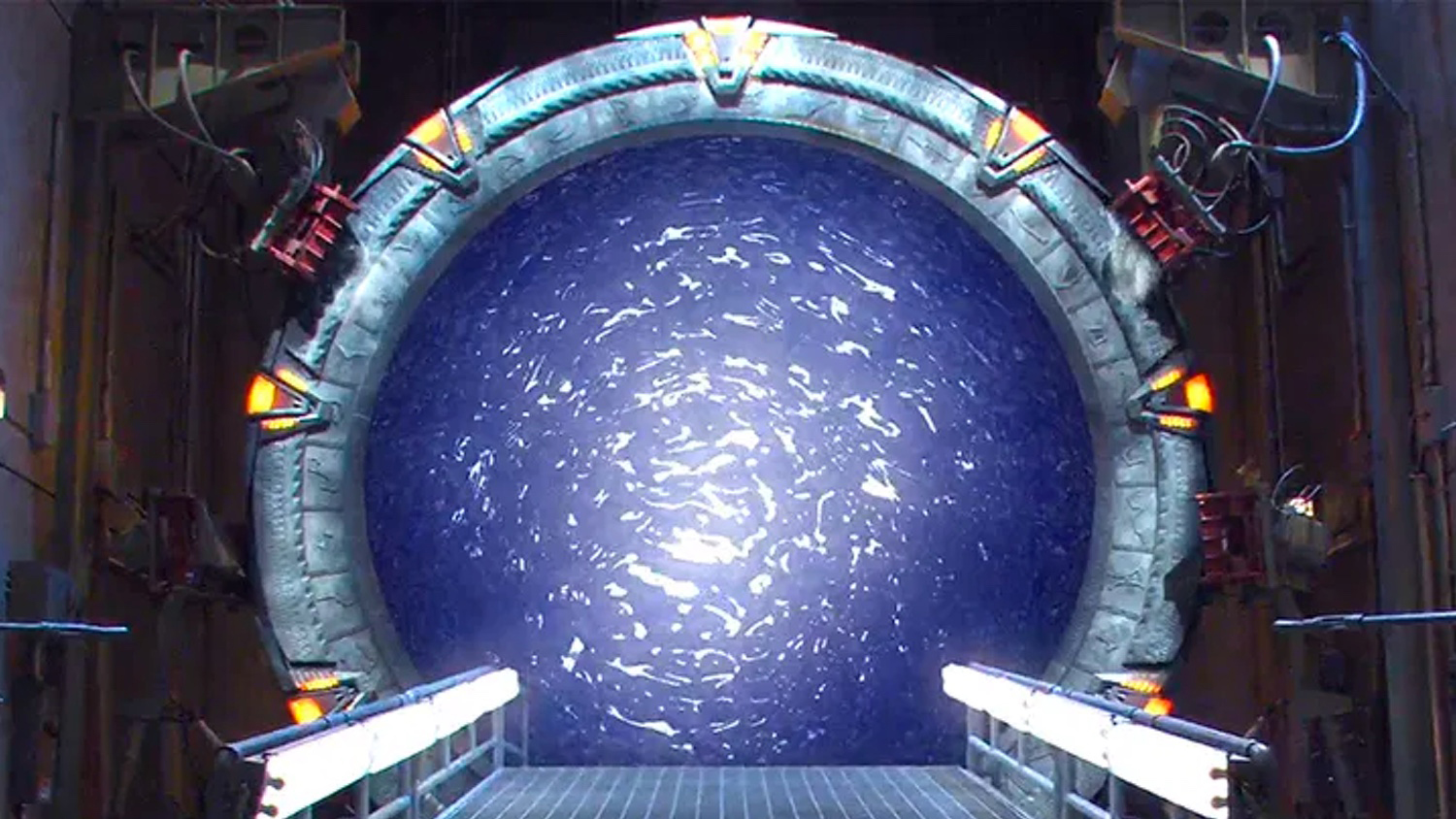
Space.com: Finally, we know you can’t tell us anything real here, but you also know we have to ask. MGM has been picked up by Amazon, and there’s been a lot of excitement around the idea of a new Stargate show coming to Prime Video. Are you actively pitching there? Is that something you think we’re likely to see? You’ve already promised Marc (Evan Jackson) a spot on the cast, you can’t let him down.
Brad: Ha! Well, I’ll say this much: MGM called me to write a pilot a few years ago for a very interested buyer, who specifically wanted me. I wrote something that was very new, yet grounded in the universe we created over 17 seasons of shows called Stargate, including several familiar faces in recurring roles, ten years on. Just read it again the other day and I’m still proud of it.
Then the pandemic hit. So much has changed in the world since then, including all of the decision-makers, I can only wait and see along with everyone else what Amazon decides to do with their franchise.
But they’ll do something. They’d be crazy not to. With or without me.
A huge thank you to Amanda, Brad, and Laurence for giving us their time and chatting with us about Stargate. If you want to check out the Stargate AI 2.0 screen read, it's going live over at The Companion on May 21st at 11am PDT, 2pm EDT, 7pm BST. You can either tune in for the initial event, or watch the whole readthrough at a later date.
You'll need to be subscribed to The Companion, but luckily they're running a promotion at the moment that gives you a three-month free trial. We'll definitely be tuning in, so we hope to see you over there.
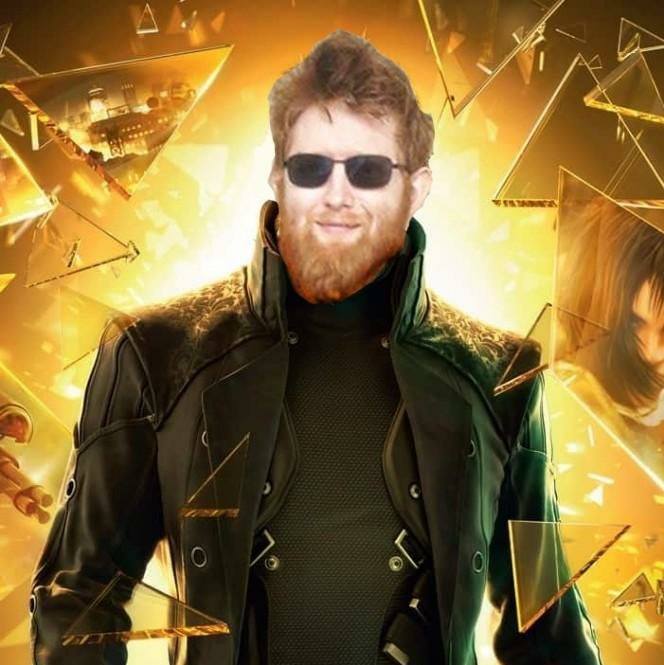
Ian is the Entertainment Editor at Space.com, covering movies, TV series, and games in the space and sci-fi realms. He's a massive sci-fi nerd and has been writing about games and entertainment for over eight years, with articles on sites like Space, LiveScience, GamesRadar, and more. With a degree in biology, a PhD in chemistry, and his previous role at the Institute of Physics Publishing, Ian is taking a world tour through the different scientific disciplines.
